Machine Learning, Complexity and Market Behavior Speakers
From Santa Fe Institute Events Wiki
| Navigation |
SFI ACtioN Topical Meeting
August 8, 2019
UBS
1285 6th Avenue (Enter on 51st Street)
New York, New York 10019
Please check back as speaker bios will be updated periodically.
Speakers Include:
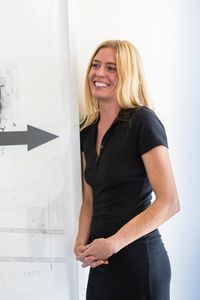
Santa Fe Institute
Jessica Flack is a professor at SFI where she runs the Collective Computation Group. They work on fundamental problems in evolutionary theory concerning collective behavior, collective computation, and collective intelligence—at all levels of biological organization—from societies of cells to societies of individuals to machine-human hybrid societies. Her particular interests are in the role of collective computation/intelligence in the origin of space and time scales and in the emergence of robust structure and function in nature and society. She is fascinated with the idea that components in adaptive systems construct their macroscopic worlds through collective coarse-graining in evolutionary and/or learning time.
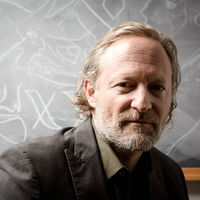
Santa Fe Institute
David Krakauer is the President and William H. Miller Professor of Complex Systems at Santa Fe Institute. His research explores the evolution of intelligence on earth. This includes studying the evolution of genetic, neural, linguistic, social and cultural mechanisms supporting memory and information processing, and exploring their shared properties. He served as the founding Director of the Wisconsin Institute for Discovery, the Co-Director of the Center for Complexity and Collective Computation, and Professor of mathematical genetics all at the University of Wisconsin, Madison. David has been a visiting fellow at the Genomics Frontiers Institute at the University of Pennsylvania, a Sage Fellow at the Sage Center for the Study of the Mind at the University of Santa Barbara, a long-term Fellow of the Institute for Advanced Study in Princeton, and visiting Professor of Evolution at Princeton University. In 2012 Dr. Krakauer was included in the Wired Magazine Smart List as one of 50 people "who will change the World.” In 2016 Krakauer was included in Entrepreneur Magazine’s visionary Leaders advancing global research and business.

Brandeis University
Blake LeBaron is the Abram L. and Thelma Sachar Chair of International Economics at the International Business School, Brandeis University. LeBaron was at the University of Wisconsin from 1988-1998, and also served as director of the Economics Program at The Santa Fe Institute in 1993. He was a Sloan Fellow, and is a recent recipient of the Market Technicians Association Mike Epstein award. He recently spent two years as a visiting researcher with the Office of Financial Research in the U.S. Treasury Department. He currently directs the Masters of Science in Business Analytics program at Brandeis, and is part of a Brandeis interdisciplinary research and teaching group interested in modeling dynamics in a wide range of fields. LeBaron’s research has concentrated on the issue of nonlinear behavior of financial and macroeconomic time series. He has been influential both in the statistical detection of nonlinearities and in describing their qualitative behavior in many series. LeBaron’s current interests are in understanding the quantitative dynamics of interacting systems of adaptive agents and how these systems replicate observed real world phenomenon. Also, LeBaron is interested in understanding some of the observed behavioral characteristics of traders in financial markets.
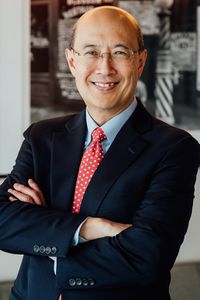
MIT and Santa Fe Institute
Andrew Lo is the Charles E. and Susan T. Harris Professor at the MIT Sloan School of Management, the director of MIT’s Laboratory for Financial Engineering, a principal investigator at MIT’s Computer Science and Artificial Intelligence Lab, and an external professor at the Santa Fe Institute. He received a B.A. in economics from Yale University in 1980, and an A.M. and Ph.D. in economics from Harvard University in 1984.
Lo is also a research associate of the National Bureau of Economic Research, a member of the Board of Overseers at Beth Israel Deaconess Medical Center, a board member of Roivant Sciences, the Whitehead Institute for Biomedical Research, Annual Reviews, and a member of advisory committees for the American Cancer Society’s BrightEdge Impact Fund and NIH’s National Center for Advancing Translational Sciences.
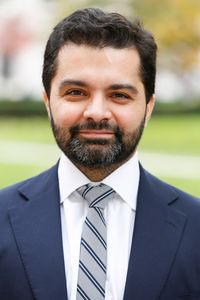
Columbia University
Ciamac C. Moallemi is an Associate Professor of Business in the Decision, Risk, and Operations Division of the Graduate School of Business at Columbia University, where he has been since 2007. He also develops quantitative trading strategies at Bourbaki LLC, a quantitative investment advisor. A high school dropout, he received S.B. degrees in Electrical Engineering & Computer Science and in Mathematics from the Massachusetts Institute of Technology (1996). He studied at the University of Cambridge, where he earned a Master of Advanced Study degree in Mathematics (Part III of the Mathematical Tripos), with distinction (1997). He received a Ph.D. in Electrical Engineering from Stanford University (2007). Prior to his doctoral studies, he developed quantitative methods in a number of entrepreneurial ventures: as a partner in a $200 million fixed-income arbitrage hedge fund and as the director of scientific computing at an early-stage drug discovery start-up. He holds editorial positions at the journals Operations Research and Management Science. He is a past recipient of the British Marshall Scholarship (1996), the Benchmark Stanford Graduate Fellowship (2003), first place in the INFORMS Junior Faculty Paper Competition (2011), and the Best Simulation Publication Award of the INFORMS Simulation Society (2014). His research interests are in the area of the optimization and control of large-scale stochastic systems and decision-making under uncertainty, with an emphasis on applications in financial engineering.

UBS
Juan-Luis Perez is the Global Head of Research, based in New York. Prior to UBS, he worked at Morgan Stanley for fifteen years and left the bank as Global Head of Securities Research covering Equities, Fixed Income, Commodities and Economics. He served on the Morgan Stanley Management Committee and International Operating Committee.
Juan-Luis started his career at Nomura Securities in 1987, moved to Banco Europeo De Finanzas and then transferred to AB Asesores from 1992 to 1999 where he was a partner when the firm was acquired by Morgan Stanley.
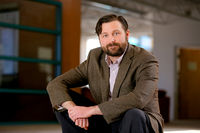
Santa Fe Institute
Will Tracy is the Vice President for Applied Complexity at the Santa Fe Institute. He came to SFI from Rensselaer Polytechnic Institute, where he was the undergraduate program director for the Lally School of Management and a faculty member. He was formerly the Associate Director of SFI’s Complex Systems Summer School, Beijing. Before entering academia, he was a Junior Professional Associate at The World Bank, where he focused on Eastern Europe and Central Asia. Will also has private sector and entrepreneurial experience in the US, China, and India. He holds a Ph.D. in management with a certificate in human complex systems from UCLA.

